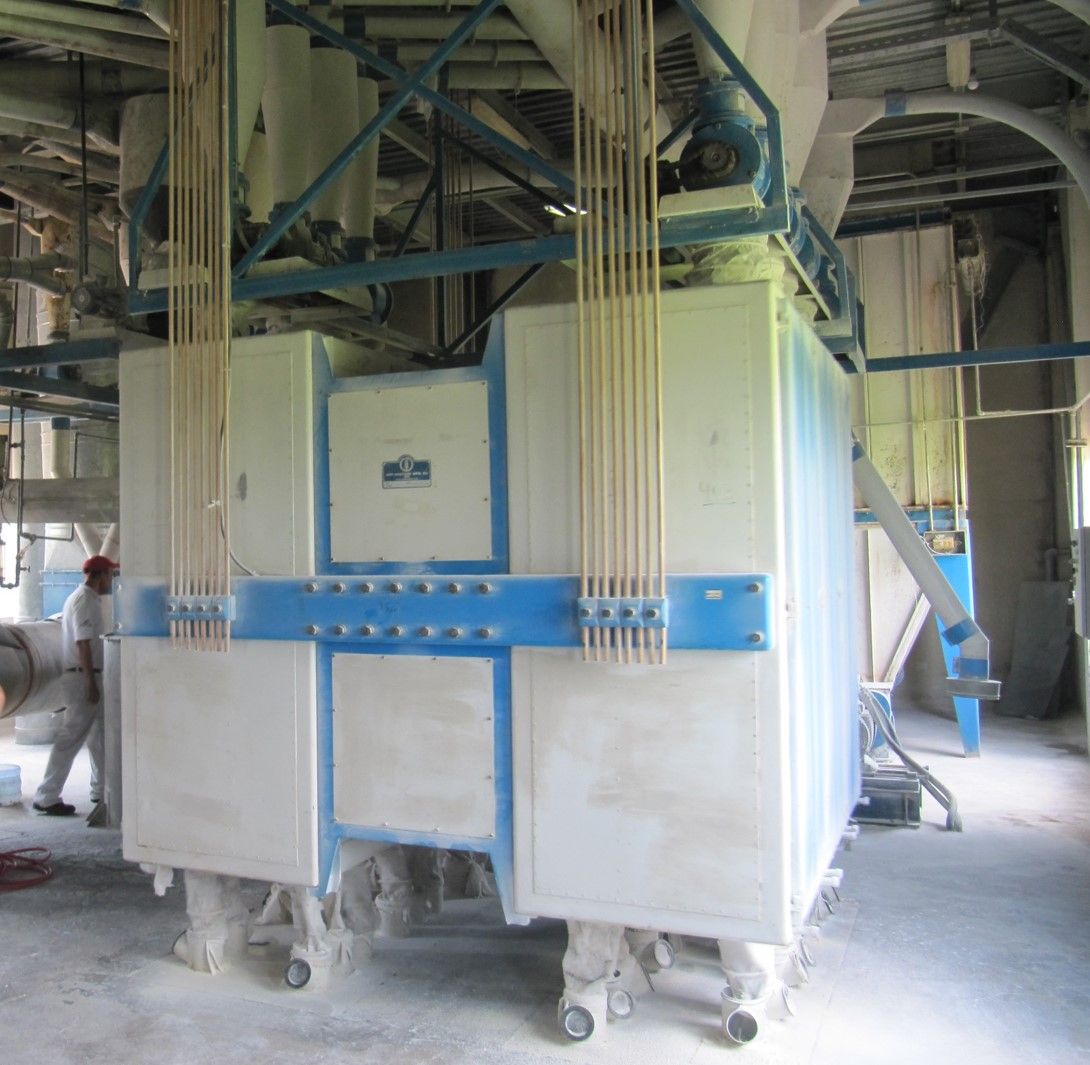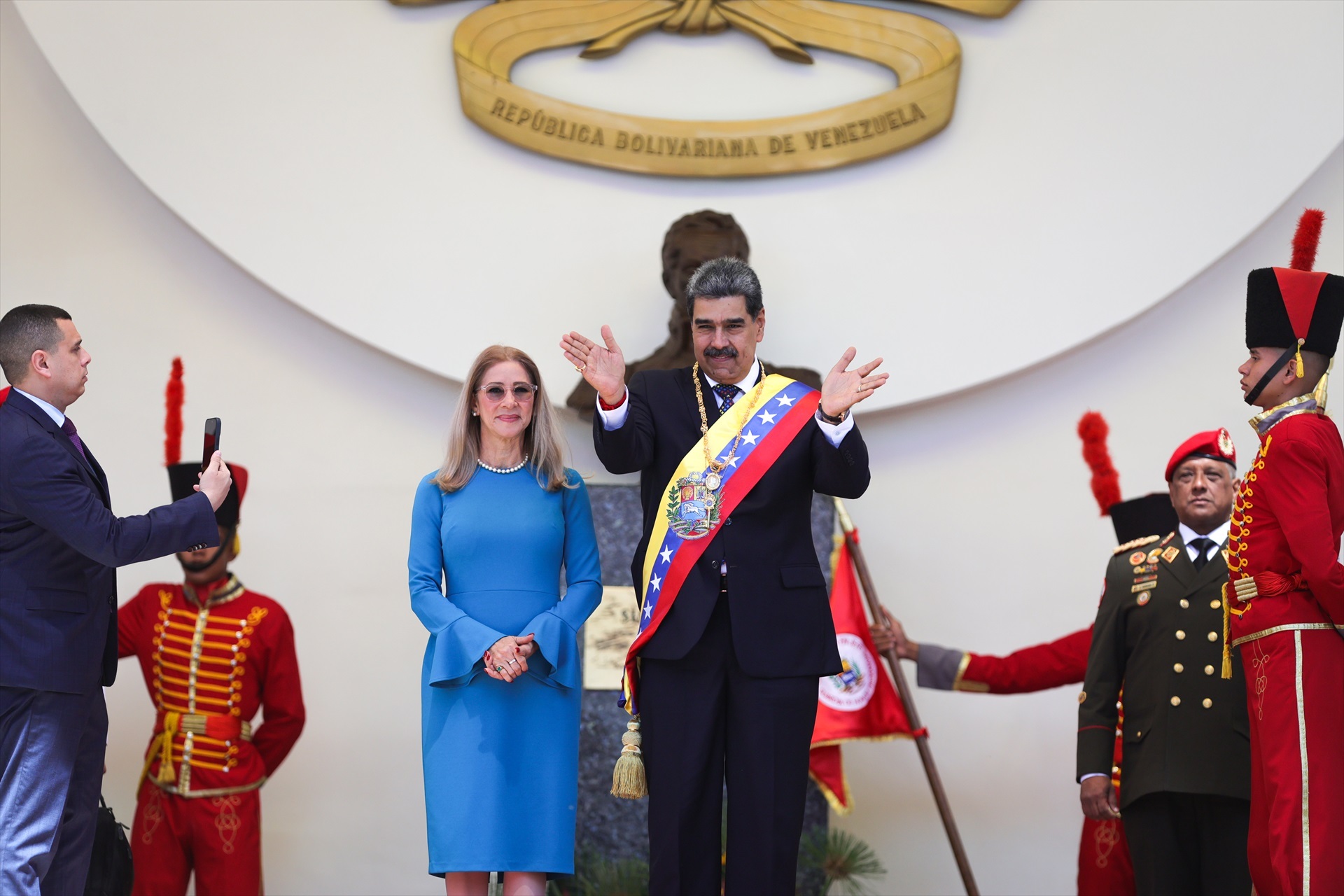The challenge of food production, a test to be passed
- As with other countries in America, Africa or Asia, the Venezuelan economy has historically been dependent. The colonialists invaded and conquered these lands to exploit natural resources (silver, gold…) and imposed monoculture to enrich themselves with the production of certain products (sugar cane, coffee, tea, rice, tobacco…).

The imposition of this model of economy that lasted over the centuries conditioned the economy and social structure of these peoples. Later, most of the peoples of Erta and South America moved from European colonialism to the “backyard” of the USA. Thus, their economy was largely subordinated to the interests of Yankee companies, abandoning the needs of local peoples and sabotaging strategies to dissipate their own economy or, directly, preventing it through military interventions and blows. Even in the twenty-first century, the dependence of these peoples can be clearly seen, based on the extraction of their natural resources and on the production and export of raw materials. Although it is obvious, it is essential to underline this element, since in the media of the system, when talking about the situation and the economy of these peoples, there is an insulting distortion, since bad intentions are often not even an intimidatory ignorance. We cannot compare the diversification of the European economy or the USA with the level of consumption of the population that many peoples from other continents have, and naturally represent a backward and clumsy people. Although there are other aspects, such as the “society of good” developed in Europe to reduce the influence of the Soviet Union, the populations exploited by the colonizing states that have increased their consumption thanks to the large surplus value stolen from the exploited peoples cannot be compared to the exploited populations of these peoples. This unnatural historical development must be made clear before entering the rest of the analyses and explanations.

In the case of Venezuela, there is another specific factor that has influenced the economic development of its last decades: major oil reserves. Starting in the 1920s, Venezuela began to come into play with the exploitation and export of oil. While during the twentieth century the State has been increasing its participation in the management of the oil industry, most of the benefits lie to an elite. In any case, the income was so high (at a time when Venezuela began to use the term Saudi) that the money reached a large section of the population (both by means of salary and indirectly, through corruption paid with oil). The Venezuelan economy is completely out of oil. This increased Venezuela’s dependence, becoming a rentier state. It is estimated that in the decade of 2010, 95% of revenues were related to oil. Simplifying the image, Venezuela exported oil and with the money obtained it imported everything from the outside, including many luxury products from the rich. One of the most important areas affected by this scheme was the agricultural and food processing industries. Instead of producing food, they were imported and eleven peasants left behind their trade, as well as their fields, knowledge and peasant culture. Many of these peasants went to the big cities in search of work (mostly moving in informal jobs) and concentrated in the outer areas of the cities, in neighborhoods built without urban plans. The ranchy-laden slopes surrounding Caracas are the most spectacular photography of this phenomenon. In the face of this disordered process, the historical neglect of the State allowed the problem to grow, increasing the associated phenomena: confinement, family breakdown, desschooling, crime, violence, drug trafficking… On this reality, Chávez began to build his project; the key element that is avoided in the media of the capitalist system… Marginalization, the reality of the “look to the morning” and the lack of political consciousness. Government plans to take the population out of unhealthy neighborhoods and move it to the camps lacked results, despite the fact that they provided land, new houses and resources to cultivate land, including tractors. This effort to ensure decent housing can be considered, to a large extent, as a continuation of the program Gran vivienda Venezuela, launched by Chávez in 2011 and which has been followed by the Maduro government. Until October 2019, and due to economic problems, 2,800,000 homes have been granted to low-income families, 80% of the State's housing price. It is not easy to find initiatives of this kind elsewhere in the world. In any case, improper practice and lack of control and sanctions have allowed some beneficiaries to collect housing, sell it illegally and return to the previous inadequate housing. That's public to people, and a lot of people know some of that kind of case.

Chavez paid attention and effort to the need for the people to be self-sufficient to sustain genuine sovereignty, as well as to provide facilities and resources for organizing and producing. However, although the effort to dissipate the economy, increase the production of products and develop the food processing industry was part of a strategic vision, the devastating habits mentioned were found. Despite some advances, the investment made through cooperatives, among others, did not have the desired effect. Waste, poor organization and lack of control are too entrenched and, to a large extent, a good opportunity was lost to be more self-sufficient and better able to respond to the later economic attack. After Chávez’s physical disappearance, the attack on Maduro’s government has been strengthened and ensuring the food of the entire population has become a real challenge. One of the most important and key struggles currently taking place in Venezuela. And it's that since 2016, it's been making a huge effort, from government to services. The City Hall of Páez, in the State of Apure, is a clear example of this effort. Since the PSUV achieved the mayor's office, the new mayor of the social movement promoted the collective planting of all unused municipal land. As maize plants cross the city, they are spectacular in different places, and the grounds surrounding the hospital are now rice crops. In addition to the change in the visual landscape of the city, a change in social relations and citizen participation is taking place.
One problem that has become endemic at the national level is land ownership. Although some measures are in place to recover land not used by Chávez, much of the land that is useful for production is kept in the hands of large landowners and farmers, with great capacity to condition the agricultural economy. On the other side there are farmers who organize themselves into cooperatives and they do well, but there are many farmers who have encountered many factors. Indeed, in addition to the soil, there are serious difficulties in obtaining other essential elements, such as fertilizers for depleted land, equipment and spare parts for the cultivation of the soil and means for the commercialization of what is produced. Among the needs are seeds, of course. Under the hegemony of the multinationals in the agricultural industry, seed must be bought from large companies, which are expensive transgenic seeds and serve for a single harvest. In this sector, the external dependence of the economy is increasing. Faced with this, some collective peasants try to recover the creole seeds that are outside the spiral of pure business, but the challenge is not easy, once they fall into the lap of the advantages of these “modern” seeds (great production, commercial homogeneity, resistance to pests and diseases…).

Another adverse factor that many farmers have is harassment. The struggle for land reclamation in some areas continues to receive violence from oligarchic sectors. Since 2000, more than 300 peasants have died in Venezuela, most of them (if not all) at the hands of large landowners and farmers. In this context, it is worth noting the assassination of the six militants of Self-Defense Brigades Hugo Chávez on July 27, 2019, in the town of Ticoporo, in the State of Barinas, where the conflict with the land and the struggle of organized Chavista movements and traffickers and paramilitaries to control the area are mixed. However, the steps taken and the results obtained to identify and punish the direct perpetrators and those who have ordered the murders of Chavista farmers and militants are scant. Most cases remain unresolved. Although the peasant movement is mainly Chavista, the existing impunity only increases outrage and mistrust towards the government and the judicial system.
At the same time as all this happens, large agricultural companies are finding more facilities in recent years by the government. The need to increase food production is urgent and has led the Government to facilitate access by Venezuelan private importers and producers to a satisfactory internal market. The Government is in a contradictory situation, on the one hand, in the need to secure commodities for the population and, on the other, in the prioritization of the private sector in the face of popular initiatives organized (especially common ones). Despite the emergency situation, many financial resources of the State are used for private business, reinforcing some families of the bourgeoisie, in some cases with relations with government officials. As long as these measures are taken in the short term, there is not enough impetus for the supply of food through state enterprises or cooperatives. Nor are the resources made available to food-producing toilets sufficient under any circumstances. Although some use the efficiency of private initiative as an argument, the credibility of the government is eroded by many humble Chavista peasants who are trying to cultivate land.
The current situation requires a thorough analysis of what is behind titles, demonstrations, the manipulated dissemination of some facts, the dark concealment of others and the disguised propaganda of analysis in most mainstream media. The situation requires that superficial... [+]
Ten years have passed since 5 March 2013 and we cannot forget this gigantic commander of the peoples.
I don't really like the military. Especially in capitalist and career states. However, there are those who carry within the wishes of the people and have committed themselves to... [+]





















